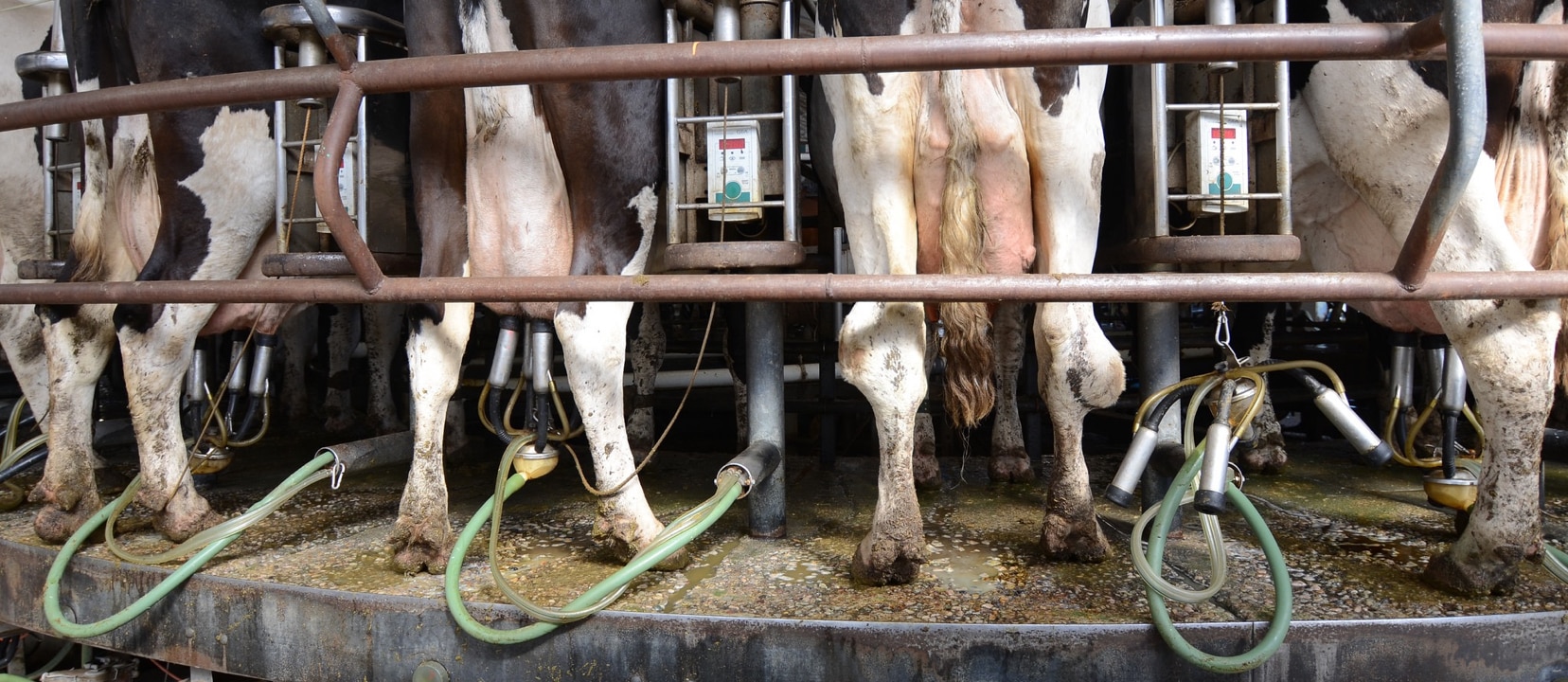Foods of animal origin in general naturally contain hormones, but cow’s milk may be of particular concern. The hormones naturally found even in organic cow’s milk may have played a role in studies that found a relationship between dairy products and human illnesses, such as acne, certain cancers, and male reproductive disorders. Milk consumption has also been associated with an increased risk of early puberty in girls and endometrial cancer in postmenopausal women, but “hormonal levels in food could be particularly dangerous in the case of vulnerable populations, such as young children or pregnant women. To these critical populations, even a small hormonal intake could lead to major changes in the metabolism.”
If you check out my video Why Do Vegan Women Have 5x Fewer Twins, you can see that children are highly sensitive to sex steroids. Because their levels of sex steroids are very low, even a small variation would account for a major change in the total activity of the involved hormone. Because no lower threshold for estrogenic action has been established, caution should be taken to avoid unnecessary exposure of fetuses and children to exogenous sex steroids, even at very low levels.
In the AMA’s Pediatrics Journal, the chair of Boston Children’s Hospital’s Obesity Prevention Center along with the chair of Harvard’s nutrition department questioned dairy industry recommendations that children should drink three glasses of milk a day. Dairy milk evolved to promote the growth of grazing animals at high risk for predation when small; so, they needed to put on a few hundred pounds quickly in the first few months of life.
The consequences of lifetime human exposure to such growth factors in milk have not been well studied. They wrote:
“Milk consumption increases serum concentrations of insulin-like growth factor 1, which is linked to prostate and other cancers. In addition, modern industrial methods maintain dairy cows in active milk production throughout their pregnancies, resulting in a milk supply with high levels of reproductive hormones.”
Pregnant cows excrete significantly higher levels of sex steroids into their milk than non-pregnant cows. The subsequent consumption of such dairy products from pregnancy results in additional consumer exposure. And it’s not just dairy. Although dairy products are an important source of hormones, other products of animal origin must be considered as well. All edible tissues of animal origin contain estrogen. This may explain why, in a study of over a thousand women eating plant-based diets, vegan women have a twinning rate that is one fifth that of vegetarians and omnivores.
Twin pregnancies are risky pregnancies, with much higher complication rates. Many parents and physicians underestimate the negative consequences of multiple pregnancy, but women with a multiple pregnancy face greater risks for themselves and their infants. Twin babies may be ten times more likely to die at birth. To avoid these complications, the research team writes, “women attempting conception should avoid milk and dairy products.”
Minimizing dairy, our nation’s #1 source of saturated fat, may be a good idea for dads too: Dairy Estrogen and Male Fertility.
What about the endocrine-disrupting xenoestrogens–how do they compare with the natural hormones in our food supply? That was the topic of my video Estrogen in Meat, Dairy, and Eggs.
Then, once they’re born, best to stick to human milk:
- Cow’s Milk-Induced Infant Apnea
- Cow’s Milk Casomorphism and Crib Death
- Cow’s Milk Casomorphin and Autism
Then, for young children, dairy can sometimes cause another problem: Childhood Constipation and Cow’s Milk
Here’s a selection of other pregnancy-related videos:
- Hair Testing For Mercury Before Considering Pregnancy
- Chamomile Tea May Not Be Safe During Pregnancy
- DDT in Umbilical Cord Blood
- The Wrong Way to Detox
- Diet Soda and Preterm Birth
- Infant Seizures Linked to Mother’s Spirulina Use
- How Long to Detox from Fish Before Pregnancy
- Bacon, Eggs, and Gestational Diabetes
- Garlic and Raisins to Prevent Premature Birth
In health,
Michael Greger, M.D.
PS: If you haven’t yet, you can subscribe to my free videos here and watch my live, year-in-review presentations—2013: Uprooting the Leading Causes of Death, More Than an Apple a Day, 2014: From Table to Able: Combating Disabling Diseases with Food, 2015: Food as Medicine: Preventing and Treating the Most Dreaded Diseases with Diet, and my latest, 2016: How Not To Die: The Role of Diet in Preventing, Arresting, and Reversing Our Top 15 Killers.
